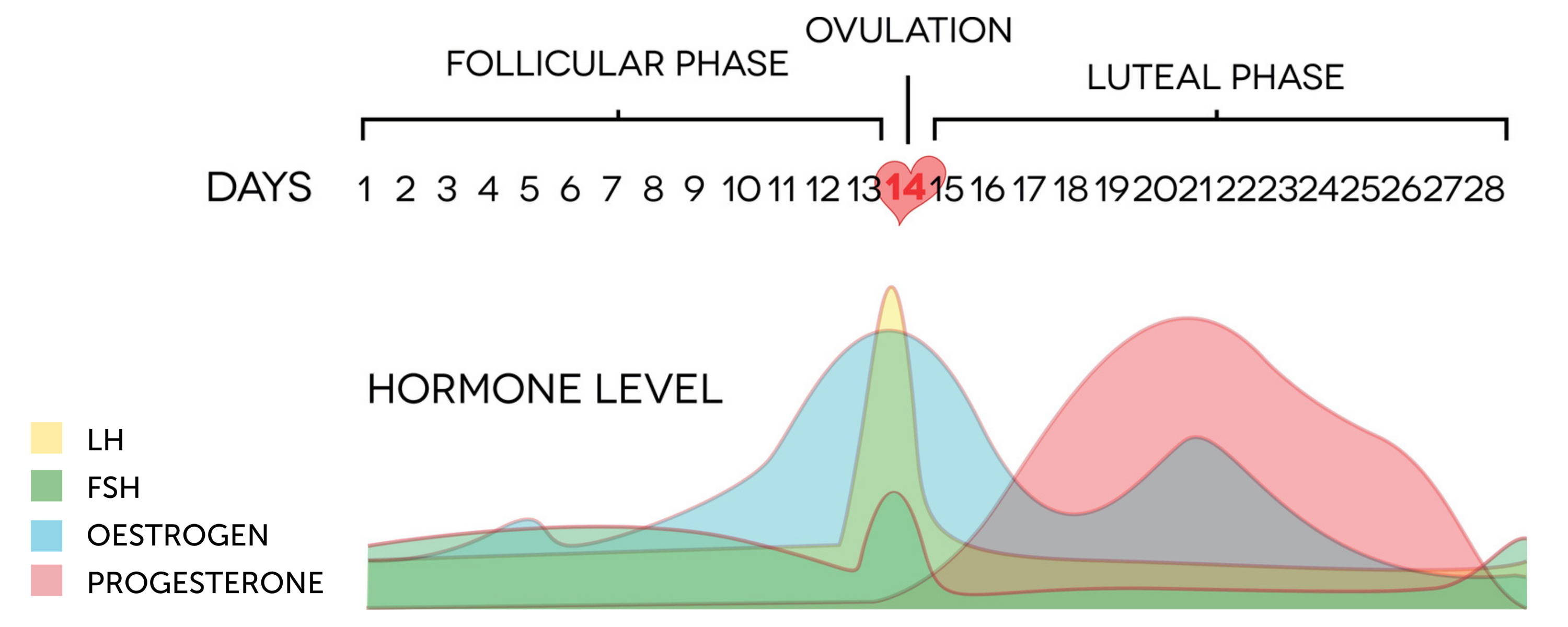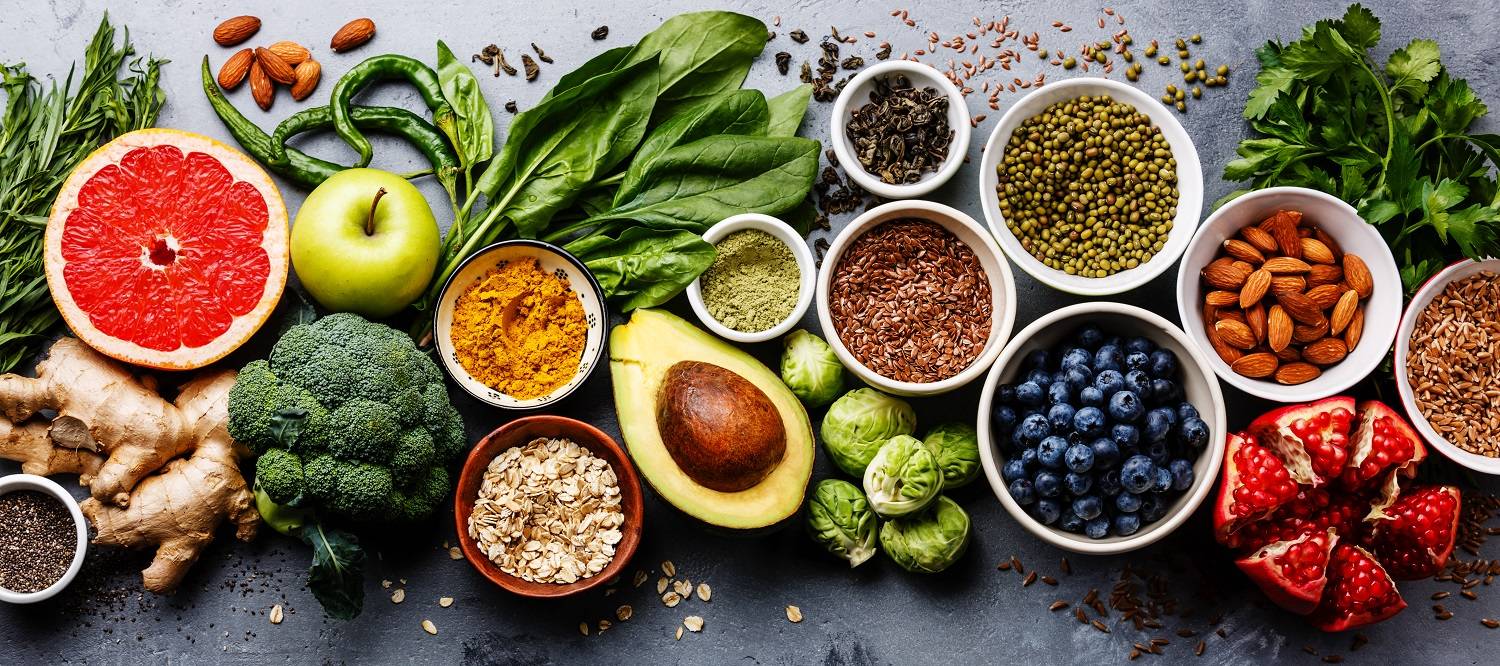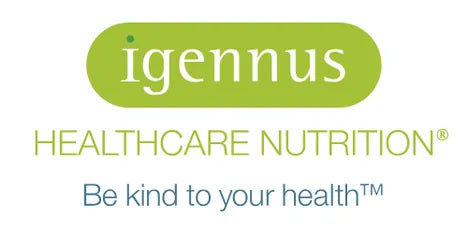80% of women experience premenstrual syndrome (PMS) at some stage during their reproductive years. (1) Ranging from rollercoaster emotions to bloating and acne, PMS often goes hand in hand with heavy menstrual periods. The same women who experience distressing monthly symptoms may also therefore be low in iron. It’s a lesser known fact that iron supplementation may actually improve aspects of PMS. In this article, we focus on the symptoms and causes of PMS, and how to smooth over ‘that time of the month’ with a combination of diet, lifestyle change and supplements.

What is PMS?
PMS refers to a cluster of physical and emotional symptoms which occur on a cyclical basis in the ‘luteal phase’, which begins 2 weeks before menstruation. At this time, after ovulation, oestrogen levels drop relative to progesterone. In the day or two before menstruation, both oestrogen and progesterone are at their lowest - often the worst point of the condition. Once menstruation starts, oestrogen rises and symptoms improve. Symptoms of PMS can range from emotional to physical complaints:
Physical Symptoms
Anxiety
Tearfulness
Irritability
Low mood
Anger outbursts
Panic
Insomnia
Headaches
Bloating
Breast tenderness
Acne
Greasy hair
Menstrual cramps
Weight gain
Food cravings
Causes of PMS
PMS is caused by fluctuating hormone levels. It worsens during times of hormonal instability, such as perimenopause, and when the thyroid or adrenal glands are not functioning optimally.
Some women are more sensitive to hormonal changes than others, or experience greater hormonal variations owing to a higher oestrogen level for most of their cycle, which drops precipitously before menstruation. Other symptoms of oestrogen dominance are heavy, painful periods, a cycle that’s shorter than 28 days, and symptoms of breast tenderness, water retention, anger and irritability.
On the other hand, women who have decreased oestrogen levels may have a longer cycle or miss periods and tend towards low mood and poor self confidence.
Low serotonin, a brain chemical that affects mood, is also responsible for PMS symptoms such as anxiety, insomnia and food cravings. In most women, serotonin levels stay fairly constant throughout the month, but in others, this neurotransmitter decreases in the second half of the menstrual cycle.
Period pain may be worsened by inflammation and raised histamine levels:
- Certain pro-inflammatory prostaglandins trigger the uterus to contract during menstruation, but an excess of these substances may occur due to oestrogen dominance with a thick womb lining, or a generalised inflammatory state in the body, resulting in severe cramps, headaches and muscle aches.
- Elevated histamine levels stimulate oestrogen production, and in a vicious cycle, raised oestrogen encourages further histamine release from mast cells, which worsens menstrual cramps and triggers headaches.
RISK FACTORS FOR PMS:
Hormonal imbalance - especially oestrogen dominance
Family history of PMS
Obesity
Depression
Pro-inflammatory diet
Nutrient deficiencies
Sedentary lifestyle
Stress
Lack of sleep

PMS Nutrition support
Follow an anti-inflammatory diet: Plenty of vegetables, some fruit, good sources of protein and fat, nuts & seeds, and minimise sugar, refined carbohydrates, hydrogenated fats, alcohol and processed foods. This way of eating also promotes balanced blood sugar, which helps with food cravings and mood swings.
Dairy exacerbates inflammation and PMS symptoms in some women. Try going dairy-free for 3 cycles and observe any changes, while making sure you get calcium from other sources.
Ensure you’re getting enough vitamins B6 & D, zinc, magnesium & calcium - if your diet is deficient, you may need to top up with supplements:
- Reduced magnesium and zinc levels during the luteal phase of the menstrual cycle have been reported in women with PMS, and taking a magnesium supplement may help, especially with mood symptoms and fluid retention. (2-5) Magnesium also acts as a mild muscle relaxant and can help with period pain.
- In a study comparing magnesium only to magnesium & vitamin B6 supplementation for PMS, the group receiving both Magnesium and vitamin B6 experienced the largest improvements. (6)
- Another study found that women with lower vitamin D levels had significantly worse PMS symptoms. (7)
- Calcium supplementation has good quality evidence supporting its use in PMS - especially important if you’re excluding dairy, as many do for symptom relief. (8)
Gamma-linolenic acid (GLA), found in evening primrose oil, converts (with the help of magnesium, zinc, B6, B3 and vitamin C) to the beneficial prostaglandin E1, which has been shown to decrease PMS symptoms of depression, irritability, breast tenderness and bloating. (11)

Other ways to improve PMS symptoms:
- Address hormonal imbalance: If your menstrual cycle is irregular, too short or long or you have suggestive symptoms, see your doctor or a nutritional therapist experienced in hormonal issues.
- Decrease histamine levels if you suffer from histamine intolerance, by diet and targeted supplements.
- Treat depression: Serotonin-boosting supplements such as 5-HTP or St John’s Wort can be tried under the guidance of your practitioner, if you’re not on prescription medication.
- Maintain a healthy weight - fat tissue actually generates extra oestrogen.
- Prioritise sufficient sleep, going to bed and rising at roughly the same time each day.
- Exercise can decrease PMS symptoms and improve tiredness and low mood. Regular aerobic exercise and yoga have both been shown to be effective at improving period pain or other PMS symptoms. (1)
- Manage stress with whatever method works for you - breathing exercises or meditation, yoga, massage, or spending time with friends.
- Limit exposure to xenoestrogens: These endocrine-disrupting substances bind to oestrogen receptors in our body and are concerning in terms of promoting oestrogen dominance and other health conditions. They are stored long term in fat tissue. Sources include pesticides on fruit & vegetables, plastic food and water storage containers, chlorine, nail polish, make-up and parabens in skincare products. Choose organic food when possible; use glass, stainless steel or ceramics to store & heat food; use natural cleaning and cosmetic products and invest in a good quality water filter.
When to see your GP
If you’re still having severe monthly symptoms despite implementing the suggestions in this article, or if you feel intense distress at any time, consult your GP. You’re not alone and there is help available.
References:
1. Vaghela N, Mishra D, Sheth M, Dani VB. To compare the effects of aerobic exercise and yoga on Premenstrual syndrome. J Educ Health Promot. 2019 Oct 24;8:199. doi: 10.4103/jehp.jehp_50_19. PMID: 31867375; PMCID: PMC6852652.
2. Posaci C, Erten O, Uren A, Acar B. Plasma copper, zinc and magnesium levels in patients with premenstrual tension syndrome. Acta Obstet Gynecol Scand. 1994 Jul;73(6):452-5. doi: 10.3109/00016349409013429. PMID: 8042455.
3. Chuong CJ, Dawson EB. Zinc and copper levels in premenstrual syndrome. Fertil Steril. 1994 Aug;62(2):313-20. doi: 10.1016/s0015-0282(16)56884-8. PMID: 8034078.
4. Facchinetti F, Borella P, Sances G, Fioroni L, Nappi RE, Genazzani AR. Oral magnesium successfully relieves premenstrual mood changes. Obstet Gynecol. 1991 Aug;78(2):177-81. PMID: 2067759.
5. Walker AF, De Souza MC, Vickers MF, Abeyasekera S, Collins ML, Trinca LA. Magnesium supplementation alleviates premenstrual symptoms of fluid retention. J Womens Health. 1998 Nov;7(9):1157-65. doi: 10.1089/jwh.1998.7.1157. PMID: 9861593
6. Fathizadeh N, Ebrahimi E, Valiani M, Tavakoli N, Yar MH. Evaluating the effect of magnesium and magnesium plus vitamin B6 supplement on the severity of premenstrual syndrome. Iran J Nurs Midwifery Res. 2010;15(Suppl 1):401-405.
7. Fatemi M, Allahdadian M, Bahadorani M. Comparison of serum level of some trace elements and vitamin D between patients with premenstrual syndrome and normal controls: A cross-sectional study. Int J Reprod Biomed. 2019 Sep 22;17(9):647-652. doi: 10.18502/ijrm.v17i9.5100. PMID: 31646259; PMCID: PMC6804325.
8. Whelan AM, Jurgens TM, Naylor H. Herbs, vitamins and minerals in the treatment of premenstrual syndrome: a systematic review. Can J Clin Pharmacol. 2009 Fall;16(3):e407-29. Epub 2009 Oct 29. PMID: 19923637.
9. Deutch B. Menstrual pain in Danish women correlated with low n-3 polyunsaturated fatty acid intake. Eur J Clin Nutr. 1995 Jul;49(7):508-16. PMID: 7588501
10. Harel Z, Biro FM, Kottenhahn RK, Rosenthal SL. Supplementation with omega-3 polyunsaturated fatty acids in the management of dysmenorrhea in adolescents. Am J Obstet Gynecol. 1996 Apr;174(4):1335-8. doi: 10.1016/s0002-9378(96)70681-6. PMID: 8623866.
11. Horrobin DF. The role of essential fatty acids and prostaglandins in the premenstrual syndrome. J Reprod Med. 1983 Jul;28(7):465-8. PMID: 6350579.
12. Chocano-Bedoya PO, Manson JE, Hankinson SE, et al. Intake of selected minerals and risk of premenstrual syndrome. Am J Epidemiol. 2013;177(10):1118-1127. doi:10.1093/aje/kws363








